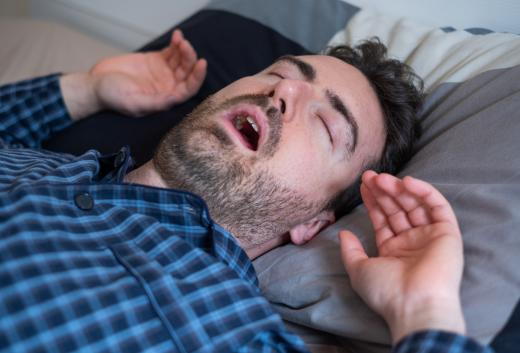
Sleep apnea affects up to 18 million Americans alone. This data indicates that around one out of every fifteen Americans, or 6.62% of the entire American population, suffers from sleep apnea.
Obstructive sleep apnea is a frequent condition in which the airways collapse or get clogged as you sleep. It can cause you to stop breathing for 20 to 30 seconds at a time during the night.
Untreated apnea can raise the risk of a variety of disorders, including hypertension, heart disease, stroke, diabetes, and various headache syndromes. Contact us for Sleep Apnea Treatment in Covina, CA.
Many people with sleep apnea are unaware that they have it. So in this blog, we will look at some of the obvious signs that you may be suffering from sleep apnea and how it can be treated.
Signs You Might Have Sleep Apnea
1. You Make Noises When You Sleep
Your obstructed upper airway may be the cause of your noisy sleep. While the two often coexist, not all snorers have apnea. The likelihood of experiencing sleep apnea increases as snoring becomes louder.
2. You Are Agitated When Sleeping
People who have apnea frequently toss and turn and display other indicators of disturbed overnight sleep. Apnea might be the reason for your kicking, thrashing, jerking, or waking up under a tangled mess of untidy linens. Sleep becomes interrupted when you struggle to breathe at night.
3. You're Usually Tired
If you obtain a full night's sleep but still feel weary all day, apnea may be hurting your sleep quality. You may drift asleep while reading or watching television. You may become more angry, less productive, and make more errors at work. Because a lack of sleep can impair the immune system, you may find yourself contracting more colds. There are several spillover effects of poor sleep quality on daily activity.
4. You Are Obese
The risk of having sleep apnea increases if you are carrying more weight. Furthermore, men are more likely than women to suffer from apnea, while the risk for women doubles after menopause.
Read our new article about Is sleep apnea linked to cancer?.
Treatment Options for Sleep Apnea
Surgeries for Sleep Apnea
Uvulopalatopharyngoplasty (UPPP): This surgical treatment widens the airway by removing extra tissue from the uvula, soft palate, and pharynx. It is beneficial for mild to severe sleep apnea.
Maxillomandibular Advancement (MMA): This complex operation repositions the upper and lower jaws forward to widen the airway, making it an effective treatment for severe sleep apnea.
Making Changes in Lifestyle
Losing extra weight can help to lower the severity of sleep apnea, especially if obesity is a cause. Sleeping on one's side rather than on one's back can help keep the tongue and soft palate from compressing and restricting the airway.
Using Oral Appliances for Sleep Apnea
Oral appliances designed by dentists can help adjust the jaw and tongue to keep the airway open. These devices are especially beneficial for people who have mild to moderate sleep apnea.
Positional Therapy
Some people get sleep apnea, particularly when lying on their backs. Positional treatment is the practice of teaching people to sleep in postures that lessen the probability of airway blockage.
Consult your doctor if you notice any of these warning symptoms. He or she will almost certainly prescribe a sleep study to study your breathing patterns while you are sleeping. Keep in mind that sleep apnea can be treated under the guidance of good and professional doctors
